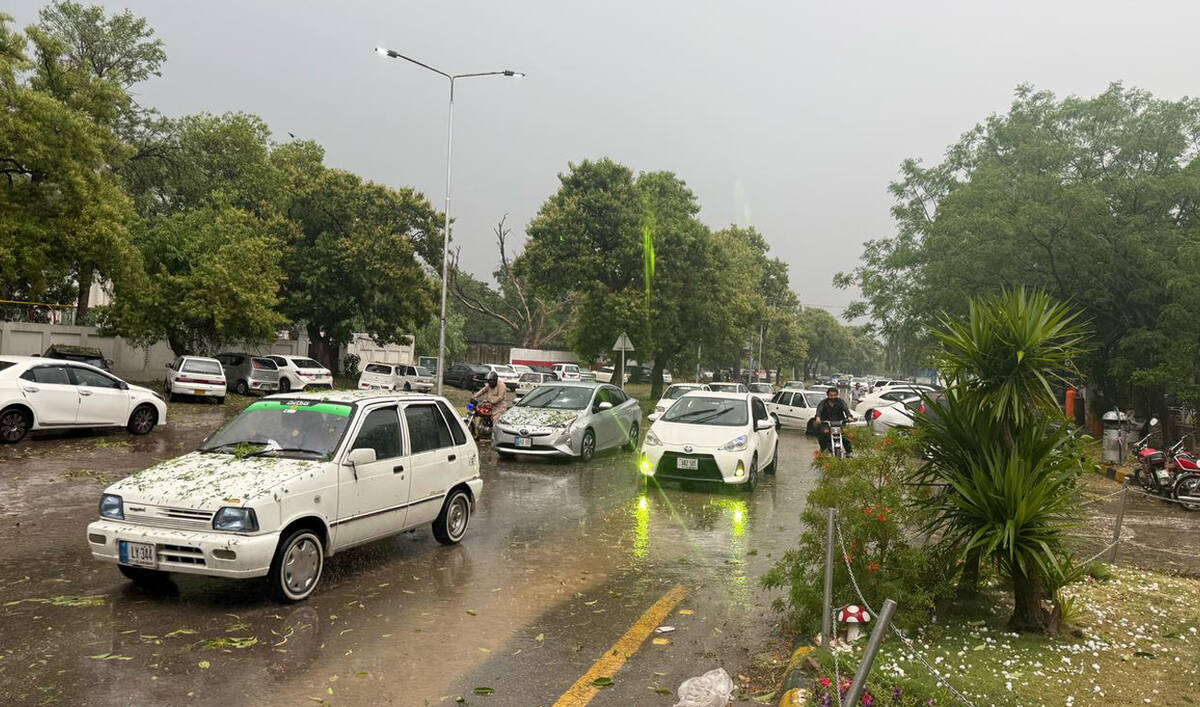ISLAMABAD: Pakistan and Azerbaijan both agreed to enhance the volume of bilateral trade between the two countries to $2 billion on Thursday, vowing to strengthen ties and increase cooperation in mutually beneficial economic projects during Azeri President Ilham Aliyev’s official two-day visit to the country.
Prime Minister Shehbaz Sharif and senior members of his cabinet welcomed Aliyev as he arrived in Islamabad. The Azerbaijan president was welcomed with a 21-gun salute and presented with a guard of honor by a Pakistan Army contingent.
Pakistan’s foreign office said this week Aliyev’s visit was expected to boost economic cooperation between the two countries. His visit follows an inaugural Pakistan-Turkiye-Azerbaijan trilateral summit in Kazakhstan this month, which was attended by Pakistan Prime Minister Shehbaz Sharif. At the summit, Sharif proposed the establishment of tripartite institutional mechanisms in economic and investment areas to further strengthen cooperation among the three nations.
Speaking at a joint press conference with Aliyev, Sharif said both countries have to move forward and “touch higher levels of achievement” in trade, saying it was at a minuscule level of around $100 million.
“If I may say with your permission, brother president, that we have discussed an initial figure of $2 billion of investments in areas of mutual beneficial projects,” Sharif said as the audience broke out in applause. “For that we had initial discussions today and tomorrow, a formal discussion will take place with the teams of the two countries.”
Sharif said he would undertake a visit to Azerbaijan in November this year, hoping the two countries would ink agreements worth $2 billion then.
“There is great potential in both sides to really enhance these figures to billions of dollars in years to come,” the Pakistani premier said.
Aliyev confirmed that delegations of the two countries would meet on Friday to discuss investment projects worth $2 billion.
“We have already reviewed several projects in the areas of energy, infrastructure, connectivity and many others, including defense industry where we are cooperating very successfully,” he said. “So, we will build a strong partnership not only on a political level which we already have but on economic level, trade and investment levels.”
PAKISTAN’S INVESTMENT PUSH
Pakistan has increasingly sought to position itself as a transit hub connecting landlocked Central Asian states to the Arabian Sea in recent months.
Islamabad has sought to bolster trade and investment relations with allies to stabilize its fragile $350 billion economy that faces an acute balance of payment crisis, soaring inflation and surging external debt.
Pakistan last year narrowly avoided a sovereign debt default when it secured a last-gasp $3 billion loan from the International Monetary Fund (IMF).
Since April, Sharif has undertaken visits to Saudi Arabia, the United Arab Emirates while Pakistan has received important diplomatic and business delegations from Iran, China, Azerbaijan, Japan, Saudi Arabia and other countries to bolster trade and cut reliance on foreign aid.
Pakistan’s Petroleum Minister Musadik Malik said on Wednesday that Azerbaijan was considering $2-3 billion in Pakistan, adding that Baku was particularly interested in the oil, gas and mineral sectors.
Speaking to a private news channel, Malik said Azerbaijan was focusing on the oil and gas exploration sector. he added that the country was keen to expand investments in the Liquefied Natural Gas (LNG) sector as well.
“Discussions will include increasing textile exports and promoting the IT sector between the two countries,” the state-run Associated Press of Pakistan (APP) quoted Malik as saying.

















